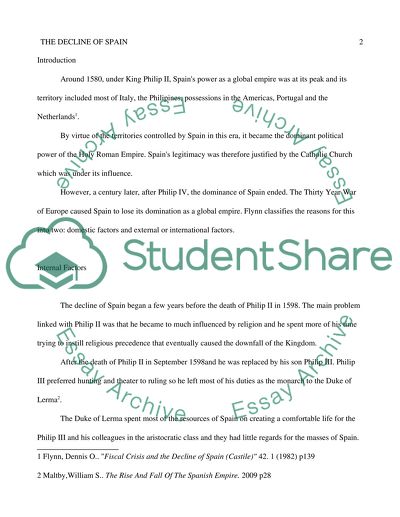Cite this document
(“The Decline of Spain: Explain Spains decline as a world power. What Research Paper”, n.d.)
Retrieved from https://studentshare.org/history/1429209-the-decline-of-spain-explain-spains-decline-as-a
Retrieved from https://studentshare.org/history/1429209-the-decline-of-spain-explain-spains-decline-as-a
(The Decline of Spain: Explain Spains Decline As a World Power. What Research Paper)
https://studentshare.org/history/1429209-the-decline-of-spain-explain-spains-decline-as-a.
https://studentshare.org/history/1429209-the-decline-of-spain-explain-spains-decline-as-a.
“The Decline of Spain: Explain Spains Decline As a World Power. What Research Paper”, n.d. https://studentshare.org/history/1429209-the-decline-of-spain-explain-spains-decline-as-a.


